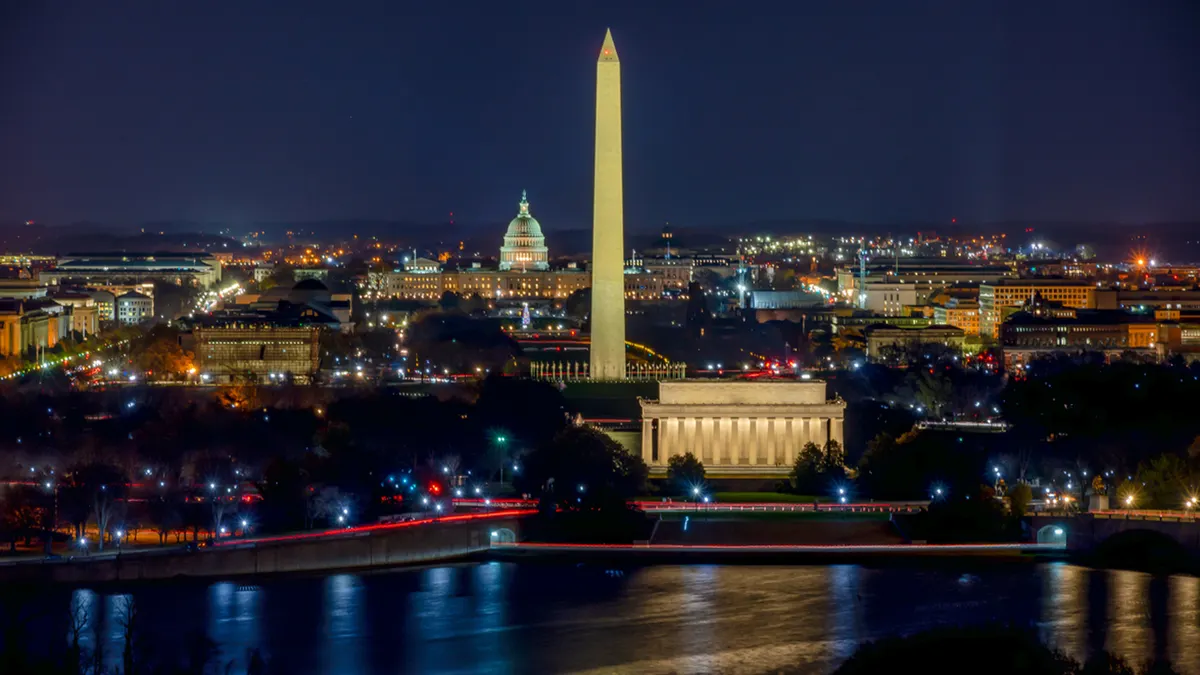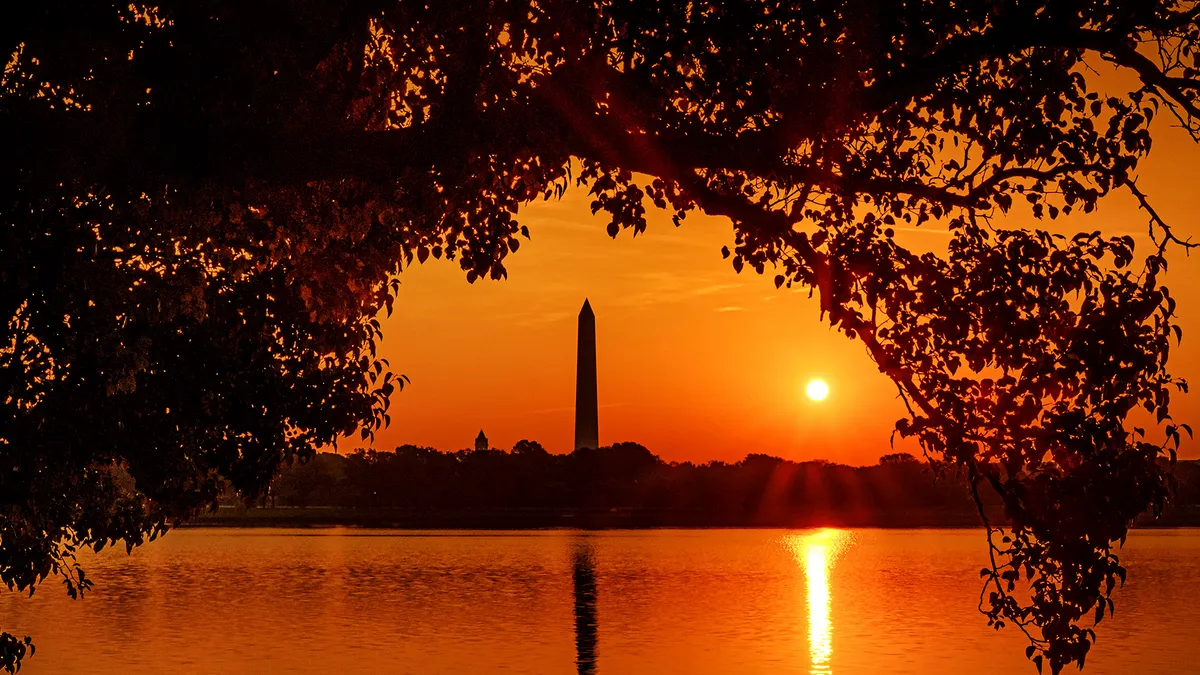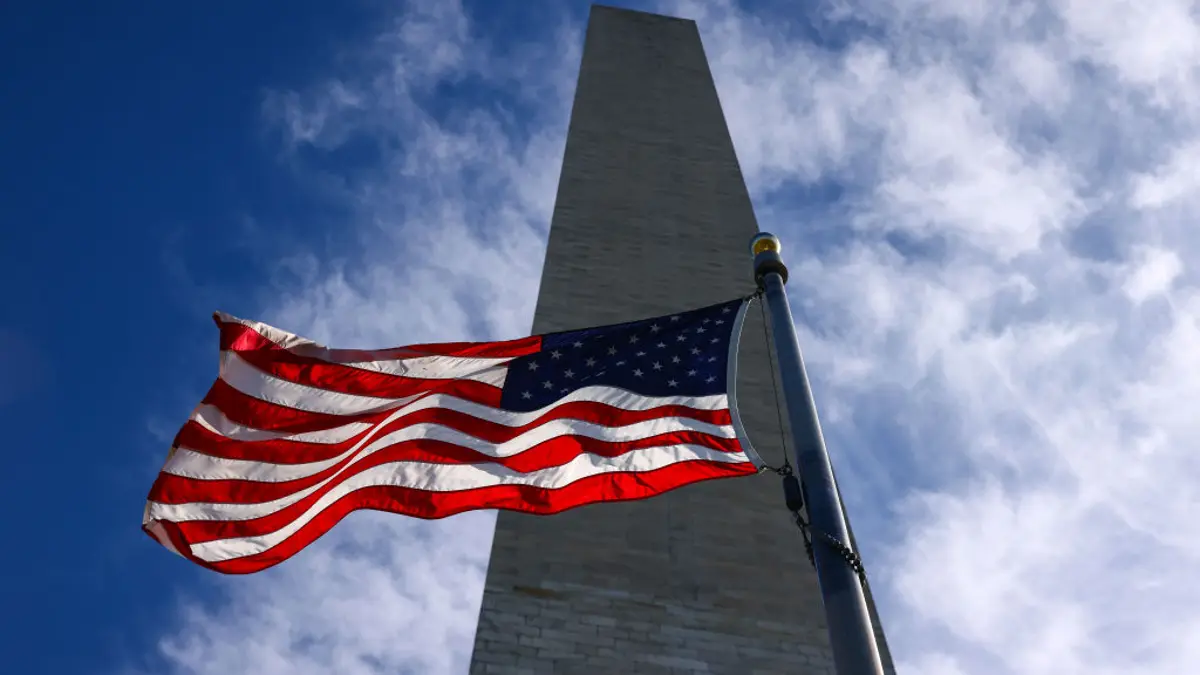Built in two phases in 1848 and 1884 and subsequently dedicated in 1885, the Washington Monument — a marble-faced granite obelisk that honors the first U.S. president, George Washington — opened to the public in Washington, D.C., on this day in history, Oct. 9, 1888.
The Washington Monument is commonly regarded as the most prominent feature of the Washington, D.C., skyline.
The monument stands 555’ 5 1/8" tall and weighs 81,120 tons, according to several sources.
ON THIS DAY IN HISTORY, OCTOBER 8, 1871, THE GREAT CHICAGO FIRE ERUPTS, KILLING 300 PEOPLE
The structure is made of white marble blocks that range in thickness from 15’ at the base to 18" at the monument’s top.
The marble changes color at 150 feet; that marks the spot where construction stopped between 1856 and 1876, according to the Trust for the National Mall. Visitors can climb the 896 steps inside the monument to the observation level.

There is also an elevator.
The construction honoring President Washington had setbacks.
ON PRESIDENTS DAY, ADVICE FROM WASHINGTON AND LINCOLN THAT'S STILL RELEVANT TODAY
It took nearly four decades to build the enormous monument in the mid-19th century, during which time it was affected by controversy and stalled by a lack of funds, according to National Geographic.
The process started in 1833.
That's when John Marshall, James Madison and others created the Washington National Monument Society to honor the 100th anniversary of George Washington’s birthday, according to The Trust for The National Mall.

The plans for the structure began in 1835, as The Washington National Monument Society appointed bonded agents to collect funds from the public for construction of a monument to George Washington, according to the National Park Service.
On Nov. 18, 1845, The Washington National Monument Society selected a design for the monument by Robert Mills — and the design of Mills was formally adopted by the society, the same source said.
ON THIS DAY IN HISTORY, DECEMBER 6, 1884, WASHINGTON MONUMENT IS COMPLETED 39 YEARS AFTER CONSTRUCTION BEGAN
The cornerstone was laid July 4, 1848, in a ceremony attended by 20,000 people with much fanfare, as Fox News previously reported.
President James K. Polk, former first lady Dolley Madison, and future presidents James Buchanan, Andrew Johnson and Abraham Lincoln were among those in attendance, the same article recounted.
Then, on Aug. 2, 1876, Congress appropriated $2 million in federal funds to complete the construction of the Washington Monument, the National Park Service said.

Thomas Lincoln Casey was appointed engineer-in-charge of the monument — and in February 1880, contractors begin installation of the staircase and elevator frames within the monument, the same source chronicled.
Notably, on Dec. 6, 1884, the capstone and aluminum point were set, marking the completion of the construction of the monument, according to several sources.
For more Lifestyle articles, visit www.foxnews.com/lifestyle
After a major restoration project in the 1990s, the Washington Monument reopened in 2001.
It closed again after an earthquake on Aug 23, 2011, that struck about 85 miles southwest of Washington, D.C., damaging the monument, according to Britannica.com.
It reopened in May 2014.
TO SIGN UP FOR OUR LIFESTYLE NEWSLETTER
Today, visitors can reserve a place online and ascend to the top of the Washington Monument via an elevator, or they can climb the nearly 900 steps.
There is a small museum at the top as well as panoramic views of our nation’s capital.
"Plus, you see the monument from all over Washington, peeking around every corner," historian John Steele Gordon, author of "Washington’s Monument and the Fascinating History of the Obelisk," told National Geographic.
"It’s iconic, the ultimate symbol of the capital."







.webp)
.webp)

